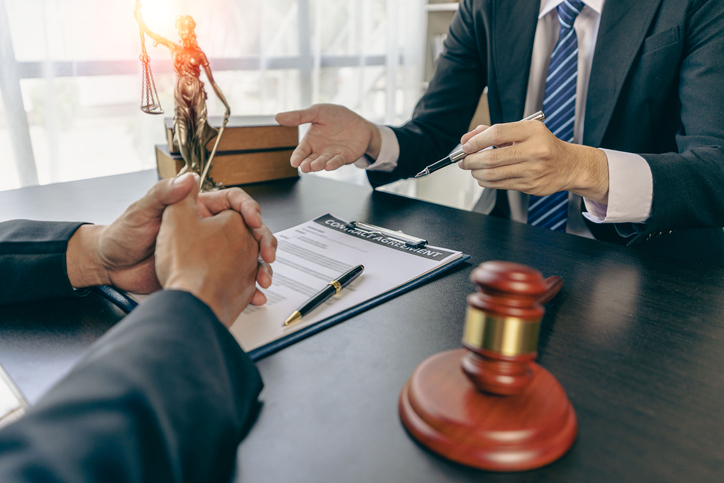Criminal appeals are legal processes where a defendant seeks a higher court’s review of a lower court’s decision, primarily to address errors made during the trial. These appeals are not about re-trying the case, but rather examining whether legal mistakes occurred that affected the trial’s outcome. The role of appellate attorneys in this process is pivotal, as they advocate on behalf of the defendant, ensuring that justice is served and constitutional rights are protected. This article delves into the vital function these attorneys play in criminal appeals.
Differentiating Between Trial and Appellate Attorneys
Trial attorneys and appellate attorneys serve distinct, yet equally important roles in the litigation process. Trial attorneys focus on representing their clients in courtrooms. They present evidence, cross-examine witnesses, make opening and closing statements, and strive to persuade a jury in favor of their client’s case. The trial is their domain, and they work diligently from the onset of a case through its verdict, ensuring that their client’s story is told and rights are defended.
Appellate attorneys come into the picture after a verdict has been reached at trial. Their primary task is not to re-litigate the facts but to address legal errors that might have occurred during the trial process. Appellate lawyers review trial records, research relevant case laws, draft persuasive briefs, and present oral arguments before appellate courts. They analyze complex legal issues and advocate for a reversal of a lower court’s decision based on legal grounds.
The Process of a Criminal Appeal
The criminal appeal begins after the final judgment has been issued in a trial court. Initially, the appealing party, usually the defendant in criminal cases, must file a “notice of appeal” with the trial court. This notice signifies the defendant’s intention to challenge the court’s decision at the appellate level. Once the notice is filed, a deadline is set for the submission of the appellate brief.
Following the notice, the trial court’s complete record, including all documents, transcripts, and exhibits, is forwarded to the appellate court. This collection of documents is termed the “record on appeal.” After reviewing the record, the appellate attorney drafts a brief pointing out legal errors or oversights that affected the trial’s outcome. Conversely, the opposing party, typically the prosecution, responds with their own brief defending the trial court’s actions. The appellate court then holds oral arguments where both sides present their cases directly before the judges. The court then deliberates on the legal issues presented and eventually issues a written opinion affirming, reversing, or modifying the trial court’s decision.
Responsibilities of an Appellate Attorney
Appellate attorneys have unique responsibilities. Their role is crucial in reviewing and challenging trial court decisions based on potential legal errors. This includes:
- Reviewing Trial Records for Errors: After a trial concludes, an appellate attorney meticulously goes through the trial court’s records. They search for potential misapplications of the law, procedural mistakes, or any instances that might have unfairly influenced the trial’s outcome.
- Advising Clients on the Strength of an Appeal and Potential Outcomes: Given the intricacies of appellate law, clients often require guidance on whether an appeal is worth pursuing. Appellate attorneys evaluate the merits of a case, advising clients on the likelihood of success and the possible legal repercussions.
- Conducting Legal Research: An essential component of an appeal is referencing previous legal decisions and statutes. Appellate attorneys analyze precedents and other relevant cases to bolster their arguments.
- Drafting Persuasive Appellate Briefs: One of the core responsibilities of an appellate attorney is to craft a compelling brief for the appellate court. This document lays out the legal arguments for why the trial court’s decision should be upheld, modified, or overturned.
- Presenting Oral Arguments to Appellate Courts: Many appeals involve oral presentations before a panel of judges. Here, appellate lawyers synthesize their written arguments, responding to questions from the bench and further emphasizing why a decision should be reconsidered.
Common Grounds for Criminal Appeals
One frequently cited ground is legal errors, which can encompass a wide range of issues. For instance, a judge might have allowed inadmissible evidence to be presented to the jury, or perhaps the jury received incorrect instructions regarding the law. These kinds of mistakes can jeopardize the fairness of the trial, leading defendants to seek redress at the appellate level.
Another pivotal ground for appeal is ineffective assistance of counsel. If a defendant believes their attorney did not adequately represent them, falling below a professional standard of competence, this can serve as a basis for appeal. Similarly, the discovery of new evidence not available during the initial trial or evidence suggesting prosecutorial misconduct, like withholding exculpatory evidence, can also be substantial grounds. Such issues underscore the importance of the appeals process in rectifying potential injustices.
Importance of Effective Advocacy
An adept advocate not only presents legal arguments coherently but also humanizes the abstract intricacies of the law, making them resonate with judges. Their persuasive skills can illuminate overlooked aspects of a case, potentially altering its outcome. In essence, skilled advocacy ensures that every individual, regardless of their circumstances, is given a fair and just opportunity within the legal system.
Having an experienced appellate attorney is crucial for those seeking to challenge or rectify decisions made at trial. Every individual deserves a fair chance at justice, especially when potential legal errors come to light. If you believe you or a loved one might have grounds for a criminal appeal, act swiftly. The Keleher Appellate Law Group is ready to guide and advocate for you, ensuring your rights are protected. Contact us today.

